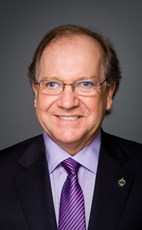Mr. Speaker, I totally agree with the hon. member.
As a matter of fact, it is important to note that the fastest growing segment of the Canadian population is among the aboriginal community.
In many provinces throughout Canada, we have a cohort of young first nations kids who are going to enter the labour market in the next decade at a speed and a number that is incredible. These kids today too often graduate or get out of the school system, attempt to enter university or trade school, and they are lacking a degree that is comparable to what the non-aboriginal kids are getting.
This serious investment, incremental funding of $1.9 billion, over the $1.55 billion that we are currently investing, would provide first nations kids on reserve throughout the country with an education system that would be comparable to what their non-aboriginal neighbours are getting.
This is the promise of the bill. This is the promise of Canada. Aboriginal people are fully members of our country and deserve the same rights as non-aboriginals.

